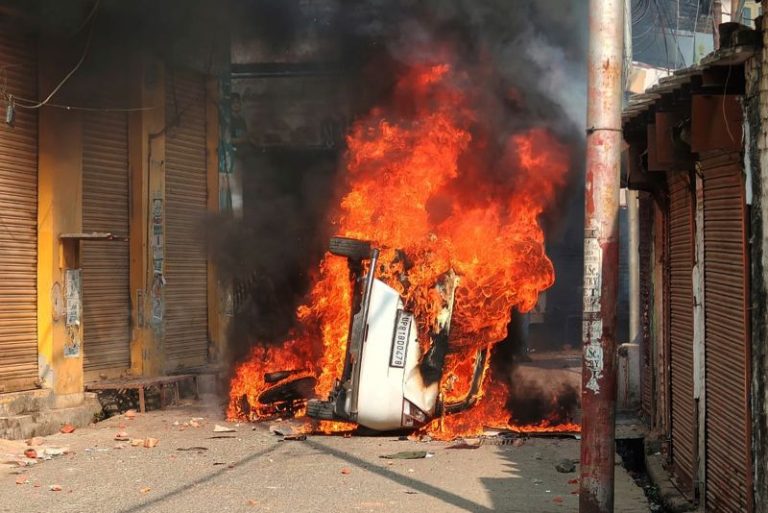Lucknow, India (AP) — Authorities closed schools and suspended internet services in a northern Indian city on Monday, officials said, a day after four people were killed in clashes sparked by an official survey probing whether a 16th-century mosque was built on a Hindu temple.
Nearly 1,000 Muslim protesters gathered outside the Shahi Jama Masjid in Sambhal, in the northern state of Uttar Pradesh, on Sunday to prevent a team conducting a court-ordered survey after a petition from a Hindu lawyer that claimed the mosque was built on the site of a Hindu temple, officials said.
“All schools and colleges have been closed and public gatherings have been prohibited” in Sambhal, said a local administrator, Aunjaneya Kumar Singh. Authorities also banned outsiders, social organizations and public representatives from entering the city without official permission until Nov. 30, Singh said, as the government scrambled to contain the unrest.
What began as a standoff escalated into clashes when protesters threw stones at police, who responded by deploying tear gas, police said.
“Some miscreants in the crowd resorted to violence, forcing us to use minor force and tear gas to restore order,” said Krishna Kumar Vishnoi, a local police officer.
Videos circulating on social media showed scenes of stone-pelting and vehicles engulfed in flames as police used firearms.
Despite the unrest, the survey proceeded as planned.
As authorities brace for potential fallout, the incident has reignited tensions over religious disputes in India where historical grievances often fuel contemporary conflicts.
Hindu activist groups, mostly linked to Prime Minister Narendra Modi’s ruling party, have claimed that several mosques in India were built over Hindu temples centuries ago during the Muslim Mughal empire.
Experts say Hindu nationalists have been emboldened after Modi earlier this year inaugurated a controversial Hindu temple built on the ruins of a centuries-old mosque in the northern city of Ayodhya, in a political triumph for the populist leader who is seeking to transform the country from a secular democracy into a Hindu state.
The petitioner in Sambhal cites historical texts that the mosque was constructed over a Hindu temple allegedly destroyed by Mughal emperor Babur in 1529. The proponents of the survey argue it seeks to uncover historical truths while opponents condemn it as a violation of the Places of Worship Act, 1991, which maintains the religious status quo of sites as they were in 1947.

